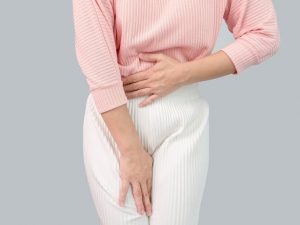Regular sex could be a cure for menopause: Among 900 women aged 40 to 79, those who had been sexually active in the previous three months reported significantly less dryness, pain, and irritation, while orgasms and overall satisfaction remained unchanged despite a decline in desire and vaginal moisture. The results suggest that intimacy itself may alleviate the genitourinary syndrome of menopause, a set of estrogen-related symptoms that affect quality of life.
How Regular Sex Alleviates the Genitourinary Syndrome
It’s no secret that women often lose interest in sex as they age. However, it has been shown that orgasms and sexual satisfaction do not decrease significantly with age. A new study suggests that regular sexual activity can relieve pain, irritation, and dryness in the vulvar area, all of which are common reasons why women have less sex as they age. The results of the study were published online in Menopause, the journal of the Menopause Society.
Estrogen deficiency during and after menopause can reduce women’s life expectancy and impair their quality of life through a syndrome known as genitourinary syndrome of menopause (GSM). In 2014, GSM was defined as a set of symptoms and signs associated with a decline in estrogen and sex steroid levels. In this new study of more than 900 women aged 40 to 79, researchers examined the association between regular sexuality and vulvovaginal symptoms during menopause. The vulva refers to the external female genital organs, while the vagina refers to the internal organs. Common problems during menopause include itching, burning, pain, decreased vaginal lubrication, and changes in skin appearance.
Sexual activity in the last three months was defined as regular sexual activity, while sexual activity in the last year (but not in the last three months) was considered lower sexual activity. Not surprisingly, the researchers confirmed that the proportion of women with regular sexual activity decreased significantly with age, consistent with the fact that the Female Sexual Function Index scores for sexual desire, arousal, and lubrication also decreased significantly with age. The Female Sexual Function Index consists of 19 questions about female sexual function in six areas. However, it was noteworthy that scores for orgasm and satisfaction did not change with age.
Low-Dose Vaginal Estrogen Therapy
Based on the study results, the researchers concluded that some sexual functions and symptoms change with age but can be maintained in women who are sexually active on a regular basis. This study also showed that women who were sexually active on a regular basis had a low prevalence of GSM-related symptoms. “The results underscore the importance of diagnosing and treating GSM. Only 2.9% of participants reported receiving hormone therapy. Local, low-dose vaginal estrogen therapy is safe and highly effective in relieving bothersome vulvovaginal symptoms that contribute to pain and avoidance of sexual intercourse.
And while optimal sexual health is essential for overall well-being, it is also critical to recognize the impact these symptoms can have on women who are not sexually active. Treatment should be offered to all women with symptoms, regardless of whether they are sexually active or not. Normalizing the use of local low-dose estrogen therapy should be a matter of course,” says Dr. Monica Christmas, associate medical director of the Menopause Society.





